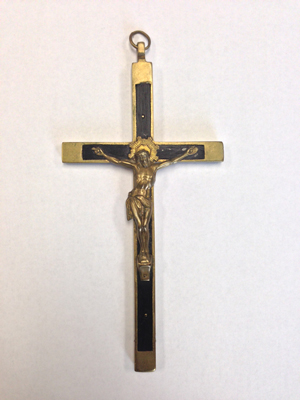Blogs
The Year of Mercy: Consecrated Life
“A Christian is committed to the belief that Love and Mercy are the most powerful forces on earth.” –Thomas Merton, The Nonviolent Alternative
Thomas Merton was born on January 31, 1915, to an American mother and a New Zealander father, in Prades, France. Although in his youth he professed agnosticism, Merton converted to Catholicism in 1938. Merton felt drawn to a consecrated life even before his conversion, and his desire to become a religious only strengthened afterwards. Although he considered becoming a Franciscan, he came to realize that his true vocation was to become a Trappist monk. He entered the Abbey of Gethsemani in Kentucky in 1941, and was ordained a priest in 1949.
During this Jubilee Year of Mercy, and as the Year of Consecrated Life officially closes, it is especially fitting to reflect on the life of Thomas Merton and the lives of other vowed religious. Merton’s choice of vocation can be puzzling to many in the secular world. Trappist monks live in seclusion and silence, carrying out the daily prayer and work of the monastery without entering the outside world. It’s easy to wonder if these quiet lives of prayer and work actually have a positive effect on all the problems of the world.
Consecrated religious who live these secluded lives find, instead, that their prayer has a greater impact on the world than any direct action ever could. They lift up their prayers so as to receive God’s mercy upon a suffering world. By sacrificing the joys and pleasures of the outside world, these men and women can devote all their energy to prayer, which they consider the source of true improvement in the world. As such, prayer and contemplation is for them the most important act of mercy they could ever perform, and a reflection of God’s own infinite mercy.

This crucifix was carried by an Ursuline nun. She wore it tied to a black cord, which was tucked into her black leather belt. The crucifix served as a sign of her consecration, and as a reminder to all of Jesus’ sacrifice and the ever-present mercy of God.
Merton reflected deeply on the meaning of mercy throughout his life. In December 1964, Merton wrote in his journal, “And this morning, coming down, seeing the multitude of stars above the bare branches of the wood, I was suddenly hit, as it were, with the whole package of meaning of everything: that the immense mercy of God was upon me, that the Lord in infinite kindness had looked down on me and given me this vocation out of love, and that he had always intended this, and how foolish and trivial had been all my fears and twistings and desperation.” (The Intimate Merton: His Life from His Journals, 1999).
If you would like to read more of Merton’s writings, Roesch Library has many of his books available. Search the catalog for his works and enjoy!
– Stephanie Soule, Collections Librarian/Archivist
